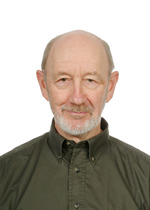Evaluating Student Writing and Speaking: Can Linguistics Help? Bernard Mohan
Wednesday, 14 Nov 2012 at 6:30 pm – South Ballroom, Memorial Union
Bernard Mohan was Chair of Linguistics at the University of Milwaukee-Wisconsin before becoming a professor in Language Education at the University of British Columbia, Canada, where he worked extensively with immigrant learners in Vancouver's schools. Now an emeritus professor at UBC, he is Research Fellow at King's College, London University, and took part in EUCIM-TE, an eight-nation research study in 2010-2011 that recommended changes in teacher education across the European Union to benefit immigrant language learners. Well known for his pioneering work on language learning and content learning, he is a functional linguist who sees language as a resource for meaning and regards language as the primary means of learning about the world. The 2012 Quentin Johnson Lecture in Linguistics.In U.S. schools, all students need to develop academic discourse, sound content knowledge and higher level thinking skills. However, English Language Learners (ELLs) have very low levels of achievement. Educators face problems in assessing ELLs’ written work helpfully. How can educators judge what students know from what they say or write?
Can linguistics help? We will show how linguistic research can provide insights into these problems and can point the way to the helpful assessment and feedback needed to raise achievement. Our central examples will be science writing by ELLs and native speakers of English, and we will demonstrate how they construct lines of meaning differently using different linguistic resources of time sequence and causal relations. In addition we will show how helpful assessment and feedback can also benefit students who are native speakers of English. Here we follow Michael Halliday’s work on the language of science (e.g. Halliday 1998) and indicate how the development of causal meaning is central to the development of scientific literacy, and how expert teachers intuitively scaffold the development of causal meaning during interactive formative assessment in science classrooms (see Mohan, Leung, Low and Slater (2010).
In the future, educators will benefit from a greater linguistic awareness of how language constructs meaning in text, and will then be better able to guide learners to develop their ability to construct meaning in academic contexts.
Cosponsored By:
- College of Liberal Arts and Sciences
- English
- Intensive English and Orientation Program
- Interdisciplinary Program in Linguistics
- Committee on Lectures (funded by Student Government)
Stay for the entire event, including the brief question-and-answer session that follows the formal presentation. Most events run 75 minutes.
Sign-ins are after the event concludes. For lectures in the Memorial Union, go to the information desk in the Main Lounge. In other academic buildings, look for signage outside the auditorium.
Lecture Etiquette
- Stay for the entire lecture and the brief audience Q&A. If a student needs to leave early, he or she should sit near the back and exit discreetly.
- Do not bring food or uncovered drinks into the lecture.
- Check with Lectures staff before taking photographs or recording any portion of the event. There are often restrictions. Cell phones, tablets and laptops may be used to take notes or for class assignments.
- Keep questions or comments brief and concise to allow as many as possible.




